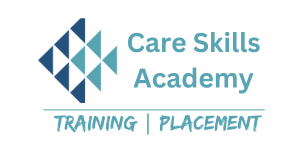The automobile industry is one of the most dynamic and ever-evolving sectors in the world. With millions of vehicles on the road, the demand for skilled automobile repair technicians continues to rise. Whether it’s fixing engines, diagnosing electronic systems, or performing routine maintenance, these skills are crucial for keeping vehicles running smoothly. If you’re looking to jumpstart your career or enhance your technical skills, enrolling in an Automobile Repairing Course could be the perfect opportunity for you.
Why Choose an Automobile Repairing Course?
The automobile industry is a backbone of global mobility, and the need for qualified technicians is more significant than ever. Cars and trucks have become increasingly complex, equipped with advanced electronic systems and computer-controlled engines that require specialized knowledge to repair and maintain. This growing complexity means that professionals who can diagnose and fix these systems are in high demand.
An automobile repairing course offers a comprehensive learning experience, covering everything from basic mechanical principles to advanced electronic diagnostics. This course is not only for those who want to work in repair shops; it’s also ideal for automotive enthusiasts, mechanics looking to upskill, or even aspiring entrepreneurs who want to start their own auto repair business.
What You’ll Learn in an Automobile Repairing Course
A well-structured Automobile Repairing Course provides a mix of theoretical knowledge and hands-on practical experience. Here’s a breakdown of what you can expect to learn:
- Basic Engine Mechanics: Understanding the basics of internal combustion engines is crucial. The course begins with lessons on engine components, how they work together, and how to perform routine maintenance like oil changes, spark plug replacements, and air filter cleaning.
- Transmission Systems: You will dive into the mechanics of both manual and automatic transmissions. Learning how to diagnose transmission issues, perform repairs, and understand gear ratios will equip you with the skills to handle one of the most complex parts of a vehicle.
- Brakes and Suspension: A key part of the course focuses on the vehicle’s brake systems and suspension. You will learn about disc and drum brakes, brake pads, anti-lock braking systems (ABS), and how to replace or repair these components. Suspension training includes the study of shock absorbers, struts, and alignment techniques.
- Electrical Systems and Diagnostics: Modern cars rely heavily on electronic systems for everything from engine management to in-car entertainment. The course will teach you how to diagnose and repair these electrical systems, including battery issues, alternators, starters, and complex wiring harnesses.
- Fuel Systems and Emissions Control: You’ll gain knowledge about various types of fuel injection systems, fuel pumps, filters, and emissions control devices. Understanding these systems helps in improving the efficiency and performance of the vehicle while ensuring it meets environmental standards.
- Computerized Diagnostics and OBD Systems: Most vehicles today come with onboard diagnostics (OBD) systems that monitor various aspects of performance and emissions. You will learn how to use diagnostic tools and scanners to read fault codes, interpret data, and pinpoint issues quickly.
- Tire and Wheel Services: The course covers tire repair, balancing, rotation, and alignment. Understanding how to manage tires is essential for vehicle safety, fuel efficiency, and overall driving performance.
- Hands-On Practice: Practical training is a significant component of an automobile repairing course. You’ll work on real vehicles, performing diagnostics, repairs, and maintenance tasks under the supervision of experienced instructors. This hands-on approach ensures you gain the confidence and skills needed to handle various automotive issues.
Benefits of Enrolling in an Automobile Repairing Course
- Career Opportunities: Completing an automobile repairing course opens up numerous job opportunities in automotive repair shops, dealerships, service centers, or even manufacturing plants. The skills you acquire are highly valued, offering a clear path to a stable and rewarding career.
- Skill Development: Whether you’re a beginner or someone with basic knowledge, this course helps develop your skills from the ground up. You’ll learn everything from mechanical repairs to electronic diagnostics, making you a versatile technician.
- Entrepreneurial Prospects: For those looking to be their own boss, the course provides the necessary knowledge to start an independent repair shop or mobile auto service. The automotive industry is full of opportunities for entrepreneurs who have the skills to deliver quality service.
- Stay Updated with Industry Trends: The course keeps you up-to-date with the latest technologies and trends in the automotive world. As cars become more advanced with hybrid and electric models, having a solid foundation in traditional as well as modern repair techniques will set you apart.
- Hands-On Experience: Gaining hands-on experience is invaluable in the automotive repair field. The course’s practical training sessions ensure that you don’t just learn theory but also know how to apply your knowledge in real-world scenarios.
Conclusion
An Automobile Repairing Course is an excellent investment in your future, providing the skills, knowledge, and confidence to succeed in the automotive industry. From understanding the basics of engine mechanics to diagnosing advanced electronic systems, this course offers a comprehensive education that prepares you for a fulfilling career.
Whether you’re a car enthusiast, a mechanic looking to upskill, or someone seeking to launch a career in the automotive industry, this course will equip you with the tools you need to excel. Start your journey today, and drive your career to new heights with our specialized training in automobile repair!

